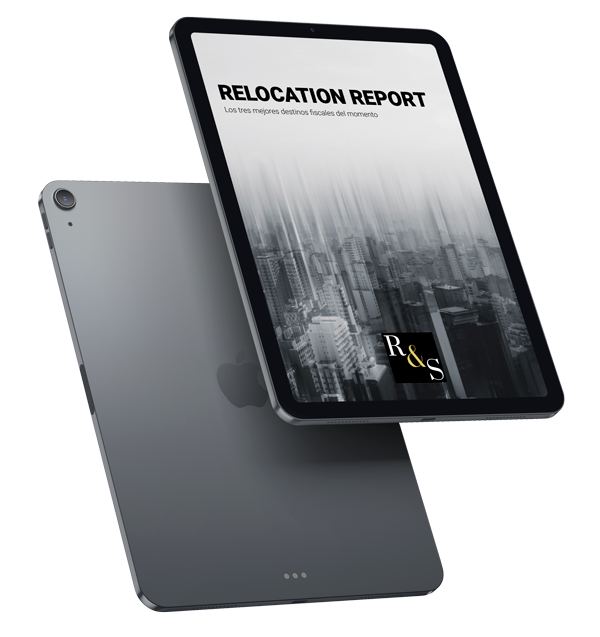Spain is one of the most popular destinations thanks to its sunny climate, rich culture, magnificent cuisine, great infrastructures, and affordable living costs. That is why it is not surprising that more and more digital nomads and remote workers are asking us for help to move their residence to this country.
Until recently, Spain did not offer a specific visa for digital nomads or remote workers who wanted to live and work in Spain legally. That situation changed in early 2023 when Spain introduced its digital nomad visa as part of the so-called Startup Act.
Who is eligible for the digital nomad visa?
The digital nomad visa allows non-EU/EEA citizens to reside in Spain to work remotely for a company or employer located outside of Spain, or as a self-employed with worldwide clients.
Additionally, some specific requirements must be met by remote employees and self-employed nomads:
- In case of an employee, as a remote worker, the employee must only work for foreign employers.
- On the other hand, in case of a self-employed nomad, he or she could work for worldwide clients including Spanish clients. However, Spanish clients cannot represent more than the 20% of her or his total activity as self-employed nomad.
In both cases, the remote worker or the self-employed nomad must also prove one of the following:
- To be graduated or post-graduated from a well-known university
- To be graduated from any vocational training program
- To be graduated from any well-known business school
- To have a professional experience of, at least, three years
What other requirements must be met?
Digital nomads and remote workers must also prove:
- The existence of a real and continuous activity for at least one year with the company or group of companies with which the digital nomad or the remote worker maintains a labor or professional relationship.
- The fact that the labor or professional relationship can be carried out remotely.
- The existence of the labor relationship between the remote worker and the employer for at least three months prior filing the visa application and any document supporting the fact that the employer allows the employee to work remotely from Spain.
- The existence of commercial relationships with one or more clients not located in Spain for, at least, the last three months and any documentation attesting the terms and conditions under which the remote professional activity would be carried out.
Steps to apply for the digital nomad visa
The application process could be summarized in two main steps as follows:
1)
Schedule an appointment with an embassy or consulate.
2)
Drafting and filing of the digital nomad visa application. This application would include, among other:
- A recent, passport-size and color photo.
- Original and copy of the page or pages with the biometric data of a valid passport.
- Criminal record certificate.
- Proof of residence in the State of departure issued by the Spanish consulate.
- Proof of payment of the visa fee.
- Certificate accrediting the public or private health insurance contracted with an insurance entity authorized to operate in Spain.
- Proof of financial means amounting to the 200% of the monthly Spanish national minimum wage (c. €2,500 per month).
Once the applicant has filed the application, Spanish authorities would generally issue their approval or denial within 20 days.
It is also important to note that family members of the applicant may also apply for the visa. In particular, the spouse or unmarried partner and dependent children may also be eligible for said visa.
3)
The applicant must get the NIE (Foreigner Identity Number) and be registered for Spanish tax and administrative purposes.
What is the duration of the digital nomad visa?
Eligible digital nomads and remote workers, including eligible family members, could apply for the digital nomad visa with a maximum duration of a year. Afterwards, the digital nomads and remote workers could apply for a residence permit to extent their presence in Spain for another three years.
What about the taxes?
Taxes are always a key matter to consider prior migrating to another state. Spanish taxes should not be seen as roadblock for those digital nomads and remote workers willing to move to Spain under the digital nomad visa.
Generally, a digital nomad or a remote worker would become Spanish tax resident if he or she stays more than 183 days in a year in Spain. In that case, the digital nomad or remote worker would have to pay Spanish taxes on his or her worldwide income. It should be noted that this taxation could be burdensome since it is levied on a progressive basis, being the highest rate 47%.
However, digital nomads and remote workers may qualify for the special tax regime for expatriates, also known as Beckham regime. Under this regime, digital nomads and remote workers would, despite the fact of qualifying as Spanish tax resident, pay taxes in Spain at a flat rate of 24% on their worldwide labor or professional income up to €600.000. The excess would be taxed at 47%. Other Spanish sourced income would be taxed at a progressive rate from 19% to 28%.
In addition, this special regime also offers a quite attractive taxation for non-Spanish income different to labor or professional income like passive income (i.e., dividends, interest, etc.). Those non-Spanish and non-labor income are not subject to tax in Spain.
In practice, the special tax regime for expatriates is attractive when the digital nomad or remote worker expects to get labor or professional income higher than €55,000 a year. Otherwise, a better taxation would be achieved under the general regime.
Those digital nomads and remote workers qualifying and being effectively taxed under this regime, upon filing the applicable communication to the Spanish tax authorities, would benefit from it during six fiscal years.
Conclusion
Summing up, Spain is an attractive destination for digital nomads and remote workers who want to like and remotely work in Spain. Moving to Spain would trigger some important administrative and tax implications which should not be overlooked.
Fortunately, Spain offers a special visa and a beneficial tax regime for those digital nomads and remote workers willing to move to Spain. From Relocate&Save, we invite you to properly understand the requirements and details of the digital nomad visa and the expatriate tax regime before moving to Spain. That would allow you to properly plan your deployment in Spain and timely comply with the applicable formalities before the Spanish tax authorities.
Relocate&Save has advised and helped several digital nomads and remote workers with their deployment in Spain. Assisting them with the application for the visa and the special tax regime for expatriates.
Our presence and local contacts in Spain make Relocate&Save the perfect partner to trust at the time of addressing questions related to digital nomads and remote workers and entrusting the application for the digital nomad visa and special tax regime for expatriates.
If you have any questions and would like to receive tailored advice on digital nomad visa and expatriate taxation in Spain, you can write to us at [email protected] or through the contact form.






